Crops
-
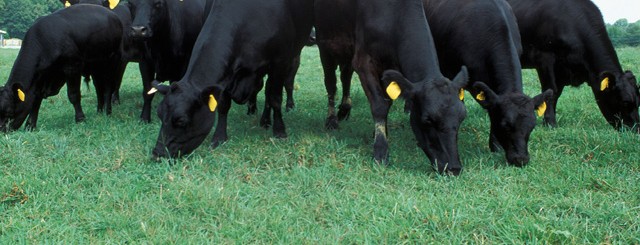
The Sustainable City Network posted an intriguing article today on the potential for increasing cattle production reducing the emission of greenhouse gases, based on new research from Iowa State researchers. The potential to reduce carbon emissions comes from switching land from production of row crops like corn to pastures, which would reduce erosion and loss…
-
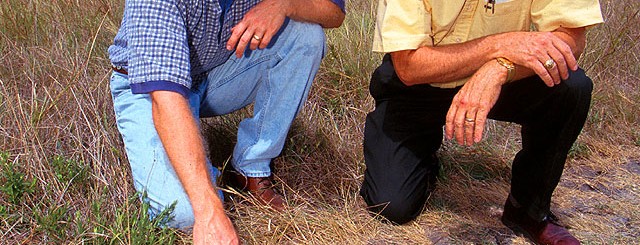
With dry conditions expanding in Alabama and northwest Georgia, farmers are worried about reductions in yields that could cost them dearly this year. AgWeb ran a story this week by the Associated Press detailing some of the concerns that Alabama farmers have with the declining moisture. You can read it here.
-
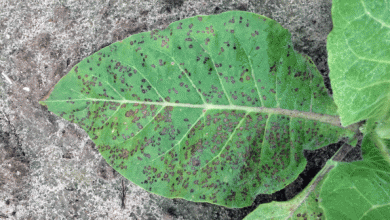
The Southeast Farm Press noted the occurrence of relatively rare weather-related damage to tobacco plants in North Carolina this week. This damage is called Weather Fleck. Matthew Vann, NC State Extension Tobacco Specialist, noted that “This event is 100 percent weather related due to the fact Weather Fleck is caused by ozone (O3) which is…
-
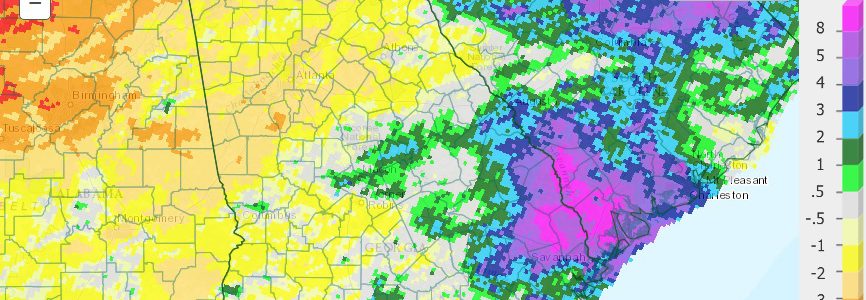
While record-setting rain fell in Savannah, most of Georgia suffered from a lack of rainfall in May. The result: drought expanded across the state, and severe drought was introduced into the northwest corner of the state by the end of the month. Temperatures at most locations were near normal in May. In Atlanta, the monthly…
-

The next CLN webinar “A changing climate for agriculture: tools for kick starting adaptation” will be delivered on Thursday, June 2, 2016 at 2:00pm EDT. Dr. John Abatzoglou Associate Professor of Geography, University of Idaho and member of the REAACH CAP team. Dr. Abatzoglou will present their work on downscale climate data This is climate data at…
-
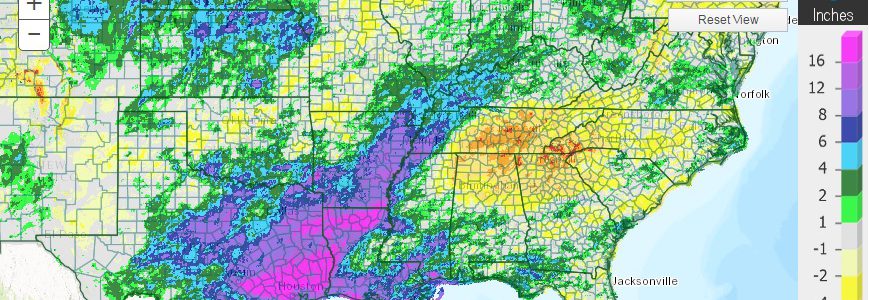
While parts of the Southeast are in moderate drought, wet conditions in Texas and Louisiana have brought a variety of diseases to tomatoes and other crops in those areas. The Vegetable Growers News posted an article this week saying that one plant pathologist said he had never seen so many different diseases in one season before.…
-

AgWeb posted an interesting story earlier this week about problems that farmers in the Pacific Northwest are having growing alfalfa this year. Spring has been very warm and that has caused the crop to mature earlier, which the author said resulted in stems growing at the expense of leaves. This means that while tonnage is…